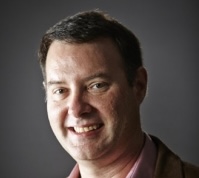Rethinking Science, Policy
ASU’s Milo Space Science Institute: Increasing the World’s Access to Space
About the Seminar
April 30, 2024 9:00am—10:00am
The Milo Space Science Institute at ASU aims to increase access to space exploration by partnering with various institutions globally. Led by Chief Scientist Jim Bell, Milo enables scientists and engineers from countries that do not have major space programs to participate in space missions. Through workforce development programs and collaborative initiatives, Milo empowers countries to engage in space research and contribute to the expanding space economy. Major efforts include enabling participation in mission design, development, and execution, as well as fostering potential deep space small-sat missions. On April 30th, 2024, we had the pleasure of hosting Jim Bell for a “New Tools for Science and Technology Policy” seminar and I had the chance to ask him a few questions. Here are his insights.
- What was something that surprised you when doing research on this project?
- “I was surprised by the widespread interest among new space agencies worldwide in becoming integral parts of the global space ecosystem. It’s no longer just NASA; it’s everywhere.”
- Share a key insight for policymakers from your work.
- “Engaging other countries through the lens of space can yield significant benefits for education, diplomacy, technological development, and scientific advancement.”
- What should policy implementers do differently as a result of learning about your work?
-
- “I advocate for a shift in perspective. Don’t assume that only major players can engage in this kind of work. It’s feasible on a smaller scale in various regions worldwide. Additionally, consider the power of consortiums in achieving shared goals.”
Links
Speaker

Jim Bell
Professor, ASU School of Earth and Space Exploration; Director, ASU Space Technology and Science (“NewSpace“) Initiative; Chief Scientist, ASU MILO Space Science Institute
Jim Bell is a Professor in the School of Earth & Space Exploration at Arizona State University and the Chief Scientist of ASU’s Milo Space Science Institute. He is also an Adjunct Professor in the Dept. of Astronomy at Cornell…
Past Series
-
October 03, 2024 3:30pm
Carbon Removal Social [Science]
Holly Buck, Sara Nawaz, Rory Jacobson, Marcela Mulholland, Amanda Borth
-
June 04, 2024 12:00pm
Hopeful Climate Futures through Speculative Storytelling: Decolonizing Global Climate Action
Chinelo Onwualu, Joey Eschrich
-
April 29, 2024 9:00am
Public Funding, Patents, and Technology Transfer: Learning from the Contrasting Oxford and Texas Models of COVID-19 Vaccine Production and Distribution
Ken Shadlen
-
March 21, 2024 9:00am
Inspirations from European Technology Assessments: Institutions, Practices and Key Debates
Anja Bauer
-
May 10, 2024 9:00am
Adapting Federal Programs to Evolving Public Values: Insights from the Department of Energy
Darshan Karwat, Matthias Galan
-
April 30, 2024 9:00am
ASU’s Milo Space Science Institute: Increasing the World’s Access to Space
Jim Bell
-
January 22, 2024 12:00pm
Reinventing Participatory Technology Assessment
Nicholas Weller, Amanda Borth, Emily Hostetler, Jared Owens, Arthur Daemmrich
-
November 17, 2023 9:00am
“Unacceptable Costs”: Managing for biological invasions and climate risks in the US Pacific Islands
Laura Brewington
-
October 30, 2023 9:00am
Patent Data & Publicly-Funded Research: Applications, Benefits, & Misuse
Bhaven N. Sampat